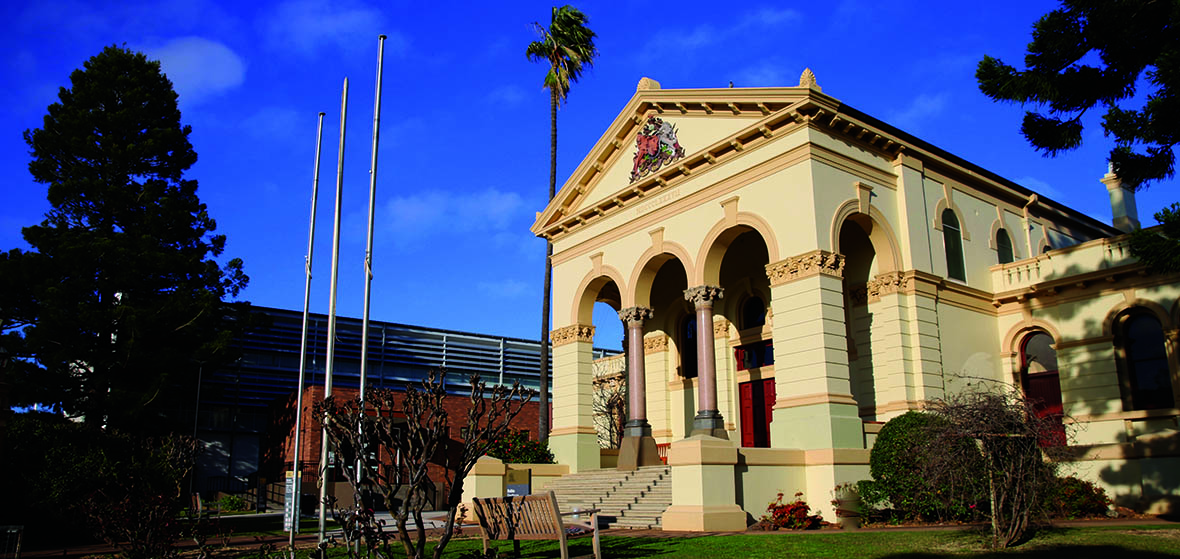The culmination of more than a decade of impassioned campaigning, the Dubbo Drug Court opened its doors on 22 February 2023. The state’s fourth court of this kind brings the community hope for a more effective weapon in the fight against drug crime than the current approach of the criminal justice system – a system in which too many of the people it is designed to serve have lost faith.
In a bleak grey prison block, a desolate line of desperate men snakes ten deep, edging towards the grim goal of a filthy syringe and a needle that has already spat poison into ten different arms.
Such is the memory that haunts 43-year-old former heroin addict Jeff Amatto. His disturbing recollections of spinning, for the best part of his formative years, through the revolving doors of the criminal justice system still haven’t been erased by 12 years of sobriety.
The proud Wiradjuri man is one of the lucky ones. He managed, through a kindly parole officer, to secure one of the alarmingly scarce places at a rehabilitation facility on the NSW Central Coast. This “sliding doors” moment took him far from his home country of Wellington, but saved his life.
Amatto is a dedicated advocate for Dubbo’s Drug Court and for culturally-based rehabilitation. He is determined to do everything in his power to save the lives of other people in regional areas from the almost certain ruin that awaits them at the hands of the criminal justice system – a system in which so many of the people it purports to serve have lost faith.
He’s pleased, but more importantly hopeful, about the potentially positive impact of the Dubbo Drug Court, which has just opened its doors after a strenuous decade-long campaign. And he believes pairing a rehab facility that will operate in concert with the court is key, particularly for Aboriginal offenders. Amatto says there’s no point in sugar-coating the truth: “Dubbo is the centre for a number of outback communities, and the sad reality is that a lot of our people will go through the drug court. I’m a proud Indigenous man, and the over-representation of young Aboriginal fellas in jail is a tragedy, but it’s the reality.”
Amatto is eager to point out that establishing the drug court alone won’t work, and has consulted widely with NSW Health on this. He says there needs to be a rehab facility nearby, but “if it isn’t culturally-based, it’ll be a waste of time”.
‘Dubbo is the centre for a number of outback communities, and the sad reality is that a lot of our people will go through the drug court.’
Having been through the system repeatedly for 13 unlucky years from the age of 18 (and having stayed clean and sober for more than a decade), Amatto knows what he’s talking about. So much so that he founded the activist movement titled More Cultural Rehabs Less Jails, its purpose as clear as its name.
“I found the right treatment at The Glen [on the NSW Central Coast], but there was nothing out here,” he says.
Amatto believes the message is slowly getting through: “We have to stop using prisons as the first and easy choice [for imposing a penalty]. “I’ve travelled this country top to bottom, and every single community I’ve visited has a prison within a 200km radius, but if you want help you often have to travel two or three days to get it. You do a crime today, there’s a bed in jail for you tonight. You need help? You have to wait six to eight weeks to get it. And you have to leave everything and everyone behind.”
Dubbo’s Drug Court, he says, is a step towards genuine progress with addressing drug crime. “We have to dig deep, and if [the person in the system] is still not making progress after the first couple of chances, well, there may be no choice but to use the ‘big house’. But we have to start looking for the underlying issues, and addressing why they’re re-offending and continuing to take drugs and alcohol before we think about prison. The big stick approach just isn’t working.”
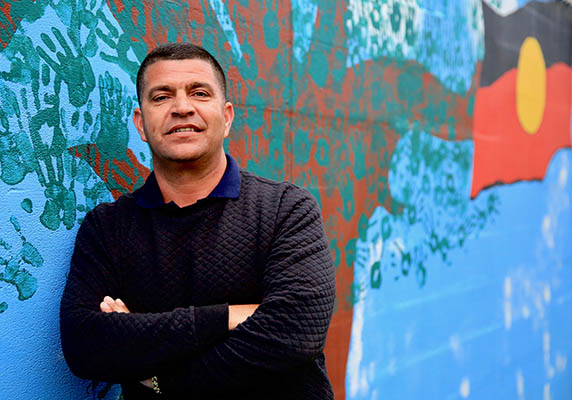
‘We’re here for the journey’
He might be on the downhill run of his 38-year career, but that doesn’t make Andrew Boog any less ardent a proponent of Dubbo’s long-anticipated and hard-won drug court.
The seasoned lawyer and long-time Dubbo local is the immediate past President of the Orana Law Society, whose footprint stretches from Wellington in the south almost to Broken Hill in the far west. He has been campaigning for the establishment of such a court for more than a decade. For Boog, the drug court is a “brilliant idea” because it “does things that nothing else can”.
Boog echoes the collective sentiment of Orana Law Society’s members in highlighting the folly of assuming that drug abuse is a behav- ioural issue best managed by the law. “We have decades of experience to say that isn’t so. It’s a health issue that has legal consequences. We can’t deal with one without the other.”
Boog adds, “The accused comes to court for the sixth break-and- enter over the past three years, and it’s quite clear they have drug issues. The previous system said to either lock ’em up or let ’em go. There’s a range of options, but they fit between those two.”
Locking the offender up, Boog says, is “the worst thing” because it’s doing nothing to address the root cause of the problem. Hence the appalling rate of recidivism.
“If the prison system has a cure rate, it’s very small. It’s not working. It turns offenders back on the street so they can re-offend. That doesn’t sound fair.”
The Dubbo Drug Court will go a long way to addressing that perception of fairness, he believes. “The difference is that the current criminal justice system is designed to process people through and get the matter finished. There’s significant pressure on judges and magistrates to keep their lists short.
“The drug court, however, uses a processing system that doesn’t come to finality until the person is back on track. They adjourn and say to the offender, ‘you come back in one month and tell us how you’ve engaged with these programs, this counselling, your supervisor, and so on – and then we’ll process it again’. A drug court says we’re here for the journey.”
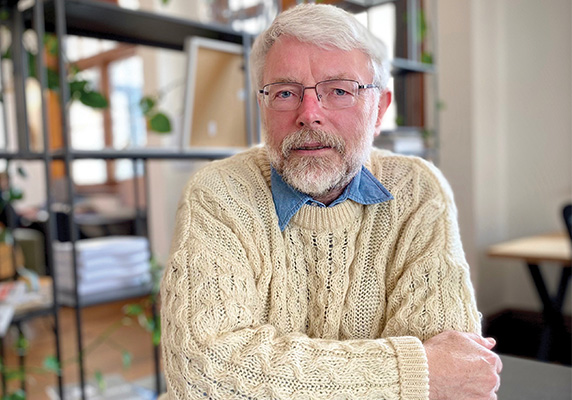
Don’t tell me jail is about rehabilitation
Amatto believes labelling the journey as ‘rough’ is an understatement. He dropped out of school at 14, and by the time he was 18 he was securely handcuffed to the criminal justice system.
With the benefit of sobriety and hindsight, he says it’s not hard to see what drove him to addiction and thence to the wrong side of the legal tracks.
“A lot of stuff I saw no kid should see. You don’t just wake up one day and say, ‘today I’m going to become a drug addict’ – it doesn’t work like that. There’s a lot of trauma that led me there. You see and live that every day, and it becomes normal. I grew up with violence and drug addiction and deprivation as my normal.”
Alcohol and drugs dulled the trauma and low self-esteem for the young Koori kid – for the time he was drunk or high, he could avoid thinking. “Mum did the best she could, but I didn’t have that privileged lifestyle of having a positive role model.”
It’s heartbreakingly telling that Amatto considers it a privilege to have a positive role model – something most Australians take for granted. To talk about a child having a violence-free home, food on the table and a safe place to sleep as a privilege rather than a right paints a potent comparison.
“It was common to go without a feed for two or three days. It was common to be cold at night, and share a bed with three or four people. It was normal to be living in an overcrowded house. Normal to share the same bath-water with three or four kids after coming back from the park. We had no hot water, had to fill the bath with the jug and a couple of pots on the stove. That’s the kind of stuff I’m talking about. The stuff that other Australians have. We didn’t have that privilege.”
Winding up in jail might have given the troubled young man a break from the deprivation of life on the outside, but it was anything but a reprieve from addiction and violence.
“I’ve seen stuff in jail that would make a glass eye cry,” says Amatto. “I’ve seen men lining up to use the same single syringe that’s gone into 20 different arms. I’ve seen them coming back from the methadone clinic and spewing into a sock, then wringing it out to get the last traces of the drug to then inject it. I’ve seen a lot of violent sexual assault. I’ve seen men come into jail for not paying a traffic fine and walk out again as a drug addict.”
He adds sadly, “Don’t tell me jail is about rehabilitation. It’s not.”
Building a better community
It’s a point Boog is keen to underscore, but he ventures that until recently a lack of political will and an absence of public understanding stood in the way of establishing a rehabilitation and drug court in Dubbo.
While the “soft on crime” argument has gathered some traction in the past, the ten-year campaign has brought the wider community along in support of change, by convincing people that giving the system greater options means working with offenders to do what a criminal justice system was originally intended to do: rehabilitate.
‘Giving the system greater options means working with offenders to do what a criminal justice system was originally intended to do: rehabilitate.’
“Not because we’re soft on crime,” says Boog. “But because you build a better community with rehabilitated drug offenders than with re-offenders. We have to do something, and the statistics are there: the drug court works. It’s not a new venture – it’s not a trial. There are three drug courts that have been operating elsewhere in the state for some decades, and the stats are quite clear. There’s a turnaround happening in those locations. “Are the drug courts a complete cure? Not even close. But isn’t it better to have a partial cure than no cure?”
By the time he was in his 30s, and being released on parole for the countless time, Amatto knew that if he went back to jail he wouldn’t be walking out again.
“I just knew I couldn’t do it anymore. I didn’t want to live, but I was too scared to die. Thank God for the right treatment – that cultural-based rehabilitation at The Glen that allowed me to reconnect with my culture. It saved me.”
Now working with advocates for change, Amatto offers valuable insights that help inform the process.
“I never wanted to go back, but I just didn’t know what else I could do. I just never knew any other way. I wasn’t taught how to send an email. I didn’t know how to do a resumé. I was released back into the same life that put me in jail. Every time I came out I was still homeless; I still had no job, I still had no ID; I didn’t know how to live. Pretty much nothing changed from the day I went in there to when I came out,” Amatto says. “But I know how to do all that stuff now – send an email, talk to people, function. I know that because I was finally taught that. That’s what rehabilitation looks like,” he smiles. “If you’re coming out of prison and you’re illiterate, and you’re supposed to apply online for housing, and you have to scan stuff and photocopy and send emails … how are you supposed to do that if you can’t read and write? A lot of our people are still going through that today. We need to not just get them off drugs and alcohol, but also to teach them how to live. Teach them about a so-called ‘normal’ lifestyle.”
It’s this approach, says Boog, that dispels the idea of “going soft on crime”. It does, in fact, get tougher on crime by trying to genuinely do something to stop it.
“Consider this scenario,” he says. “I’ve been caught dealing – I’m sentenced to 12 months’ detention, and at 12 months and one day, I’m back on the street. Into the same situation that put me in prison. Only this time I have more customers, and a few more clues as to how to avoid being caught next time.”
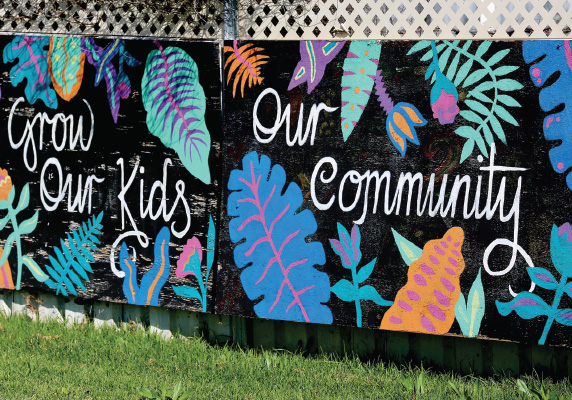
“Whereas if I’m engaged with the drug court, some so-and-so is going to pry into my very personal life at very regular intervals for an extended period of time – that’s a fair bit of accountability. But if I just cop the jail sentence, I’m not accountable beyond not doing anything stupid to extend my stay,” Boog explains, adding that if both the offender and the family are engaged in the process then genuine rehabilitation is more likely. Not every offender will be eligible for processing through the Dubbo Drug Court. “Matters involving significant violence will be excluded,” says Boog. “And if you’ve already been through the process and have re-offended, you won’t necessarily be denied a second chance, but you’d better have a good reason for wanting a second crack.”
It won’t be the revolving door some detractors fear. On the contrary, Boog says, “Offenders will have to take responsibility for their own rehabilitation; no-one is going to do it on their behalf. If you don’t take responsibility, turn up for the programs, engage with the process, you’ll be brought before a judge and sentenced.”
Partners in a gargantuan struggle
Perched on the steps of the old Dubbo courthouse, under the coat-of-arms that bears the familiar motto “Dieu et mon droit” (“God and my right”), Stephen Lawrence and Frank Doolan make an intriguing pair.
Lawrence, a barrister and international human rights champion who has also been at the helm of Dubbo Regional Council as the city’s Mayor, looks quite at home in the shadow of the
imposing building. Doolan, known affectionately as “Riverbank”, is a Wiradjuri elder and an advocate not only for Indigenous people, but also for all humanity. He looks no less comfortable here, but certainly less likely to be at home. Lawrence and Doolan are not just mates.
They’re partners in what they both know (albeit from different perspectives) as a gargantuan struggle: to restore trust in a criminal justice system by which too many vulnerable people feel abandoned.
With a lengthy career championing the rights of some of society’s most marginalised people, long before his tenure as mayor Lawrence has been at the forefront of the push to establish a drug court for Dubbo, and the rehabilitation he believes must certainly go with it. For his part, Doolan understands better than most the depth and disastrous effects of the torment and trauma wrought by drugs on the communities of western NSW.
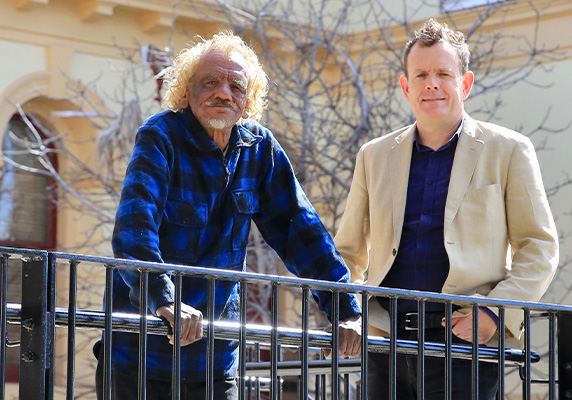
When “Riverbank” speaks, people listen. He has been a strong but measured voice in what he sees as not just the establishment of a bricks-and-mortar drug court, but also another step towards “healing the hurt” – for the whole of society.
Lawrence was working with the Aboriginal Legal Service (ALS) in western NSW around the time the community campaign for a drug court in Dubbo began in earnest.
The ALS had taken to the High Court the case of a young man from the remote and deeply troubled community of Wilcannia in the far west, a case that became the benchmark for consideration of social disadvantage in sentencing.
Lawrence says that Bugmy v The Queen [2013] illustrated, through a renewed exploration of mass incarceration and justice reinvestment, that “we’re going somewhat around the wrong way” in terms of the way we consider crime, and the impact of imprisonment, particularly in marginalised communities.
Like the Orana Law Society, Lawrence believes there is a circular motion in play in the existing system, which in essence creates rather than challenges crime and disadvantage.
“It becomes a criminogenic system. The dichotomy between victim and offender is quite false sometimes because there’s often an extreme crossover,” Lawrence says.
The issues of drug abuse and crime aren’t exclusively Indigenous in nature, but Lawrence echoes Amatto when he says that if there’s going to be a restoration of trust and faith in the power of the criminal justice system to genuinely rehabilitate, it’s more important to be realistic than to be “woke”.
The rush to take an avowedly race-neutral perspective can leave realities dangerously obscured. “If you walk into the court room in Dubbo, the problem looks pretty Aboriginal, in terms of the percentage of those being jailed,” says the city’s former Mayor. Lawrence says, “These perspectives about mass incarceration and justice reinvestment very much incorporate critical perspectives around race.”
‘There is a circular motion in play in the existing system, which in essence creates rather than challenges crime and disadvantage.’
The campaign for a rehab facility and drug court, of which both Lawrence and Doolan were a crucial part, managed to take a hitherto conservatively “tough on crime” community along with it. “The rehab became a kind of emblem of crime reduction,” according to Lawrence, who says it was a conscious move to link drug use to unacceptably high crime rates. “We knew that’s where you’d find the groundswell of community support – it was a way to neutralise a potential source of opposition. Because
of our high crime rate in Dubbo, it’s always been fertile ground for opportunistic campaigning for ‘law and order’.”
Doolan, who has seen first-hand the impact of what he believes to be the “mismanagement of the drug issue”, says that, while it’s important to see drug abuse as a health matter, linking drugs to crime for the purpose of the campaign to establish the drug court was “a masterstroke”.
Making that connection was what brought local civic and political leaders together on the issue, which in turn brought the community along for the campaign ride.
“But [the drug issue] is a health issue, and you need to look at the reasons people are self-harming by putting drugs in their bodies. The insidious evil of illicit drugs in our community is just an indicator of a much deeper malaise,” Doolan says.
While both agree that the Dubbo Drug Court, and the rehab that goes hand in hand with it, present no “silver bullet”, it’s a momentous start. “I don’t think you can underestimate the impact of tens of millions of dollars being spent on drug treatment. It will significantly reduce the level of drug use and crime in the region,” says Lawrence.
“It goes back to the justice reinvestment theory, which recognises a circular link between spending on social services that reduce crime and spending on courts and prisons that address crime. The theory also says that if you increase spending on one you can ultimately reduce spending on the other. There’s a lot more work to be done on that theory in this region, and this drug court and rehab is the beginning of that.”
Doolan, like Amatto, has long railed against what he calls the “big stick” approach to criminal justice. “You can try the jackboot approach and you’ll suppress an uprising, you’ll improve appearances, but you’ll do nothing for the spirit of the people,” he says.
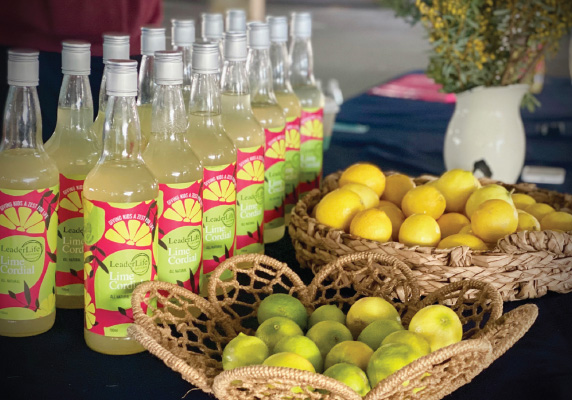
Doolan adds, “You’ll leave them embittered and hardened by their experiences. It comes back to the same reason the whitefella way fails with Indigenous people when it comes to housing, education and employment – you forget about the other ‘e’, and that’s engagement. If you give people options and the opportunity to own their own mistakes and to have a second chance, then we all have a chance of success.”
Restoring faith in the system
The fact that there has been genuine bipartisan and cross-cultural support for the establishment of a drug court in Dubbo is testament to the shift in public appetite for a restoration of faith in “the system”.
There’s a genuine will for change, and the establishment of the drug court – with the blessing of most of the community – bears witness to this encouraging desire for a system that genuinely considers the people it aims to serve. “There’s been so much that’s happened on a state and national level to reduce crime over the past two decades, but it hasn’t happened in regional NSW,” says Lawrence. “We haven’t been the beneficiaries of those changes.”
The establishment of the drug court and rehab facility is, however, a long overdue and deeply welcome step in the right direction. Asked about his hopes for the Dubbo Drug Court and the rehab facility, Doolan smiles widely.
“I think the best is yet to come. The benefits of this won’t be evident for some time yet. But it’s been my experience as an Indigenous man – and don’t ask me, go ask people at places like The Glen – whenever an Indigenous man or woman gives up the stuff that’s crippling and destroying their lives, the first thing they want to do is something meaningful.
“They want to get an education or qualifications or get a job. If this community can help my people, the wounded amongst us, to overcome the issues that confront us, then over time it will build a better and more harmonious community.”
Helping build that better community is Amatto’s renewed raison d’etre; he believes that with his lived experience he’s also perfectly placed to help rebuild trust in the judicial process. “To restore faith in the system, to make change that’s real, you need people who have been through the system helping guide those changes,” he says.
“If you haven’t lived it, you don’t understand it. No matter how well-intentioned you are, you can’t grasp the core issues unless you’ve been through it. And for those who have lost hope, lost faith in the system, you can’t be what you can’t see. There’s no greater power than to listen to someone who’s been through it and lived to tell the tale.”
‘To restore faith in the system, to make change that’s real, you need people who have been through the system helping guide those changes.’
But Amatto believes the system was “built broken”. “What we’re doing isn’t working, and it hasn’t since day dot. We’re splashing millions of dollars on different programs and services, and the statistics of incarceration, particularly for Aboriginal people, are going up. With all that money, you’d think something would change, but it hasn’t. It costs $8m to fund a rehabilitation centre – and $620m to build a jail. It’s simple maths.”
The Dubbo Drug Court will ultimately result in less work for the local legal profession, but Boog says the “dozens of lawyers” in town who are involved with the criminal justice system don’t care about that: “They practise law to build a better community, and that’s the one we want to live in … if there are fewer clients, there are fewer people breaking into houses, and that’s a good thing.”
Lawyers, Boog says, aren’t renowned for collective agreement, but on this issue they have reached unanimity. “We don’t tend to fall in behind each other with any enthusiasm, and yet on this issue everyone is singing from the same song sheet. Lawyers across the board are saying they want this Dubbo Drug Court.”
On behalf of the legal fraternity, Boog is urging the community to offer similar support.
“Drug courts are doing good work. The evidence is there. It may not work, but let’s at least do something that has shown it can, rather than keep doing something we know doesn’t work. Einstein said it: it’s the ultimate stupidity to keep doing the same thing and expect a different result.”
It’s a sentiment, and a plea, Amatto shares. “Back the drug court, back the rehab. Support it and be happy for it. Give it a chance to work.”

